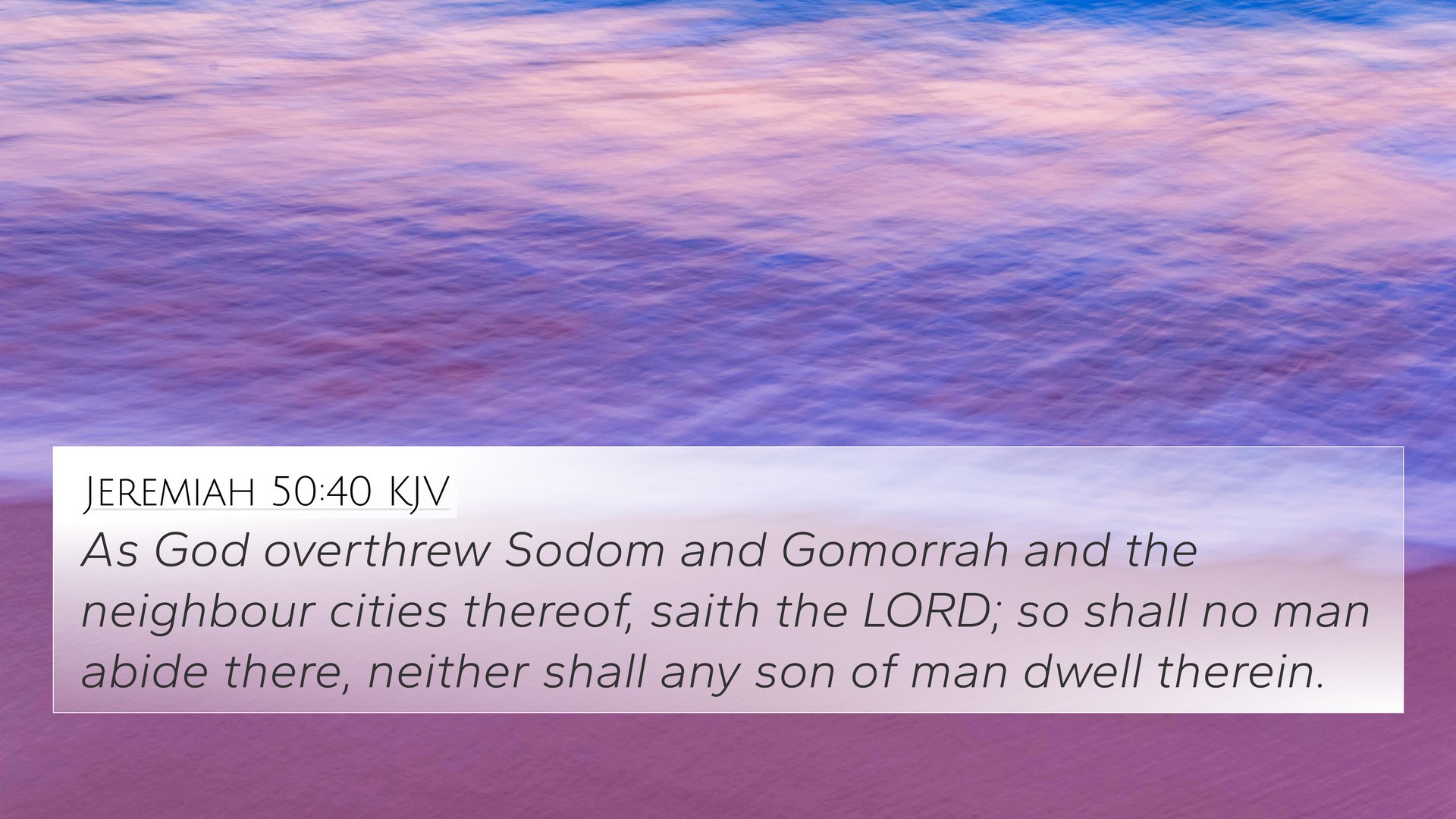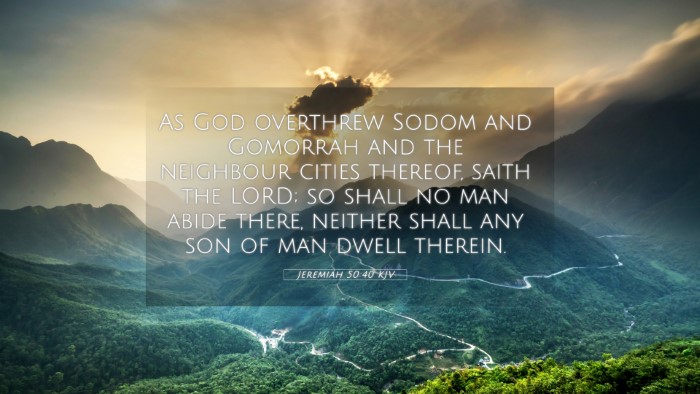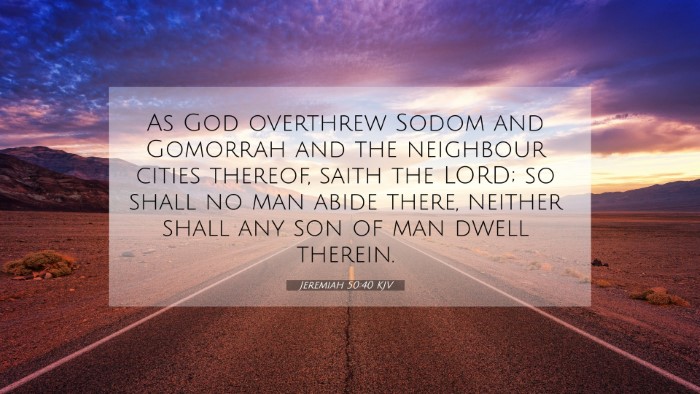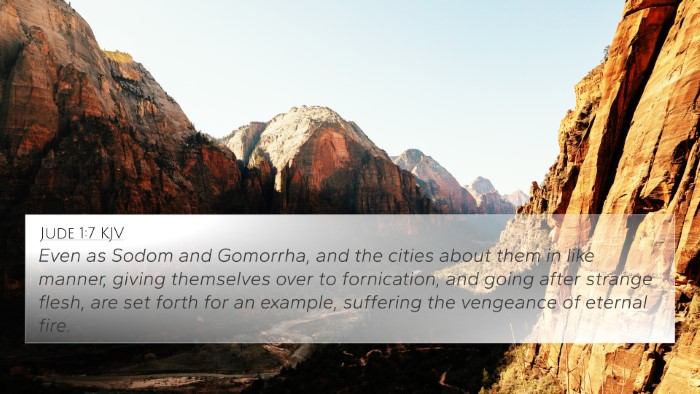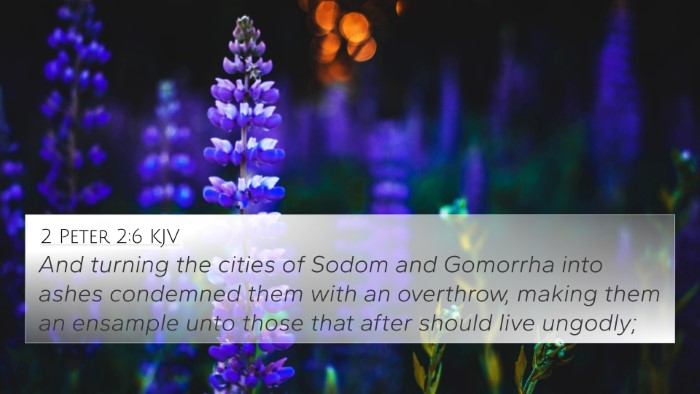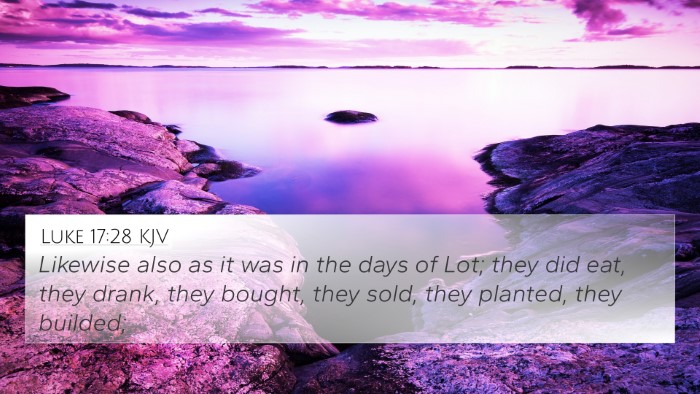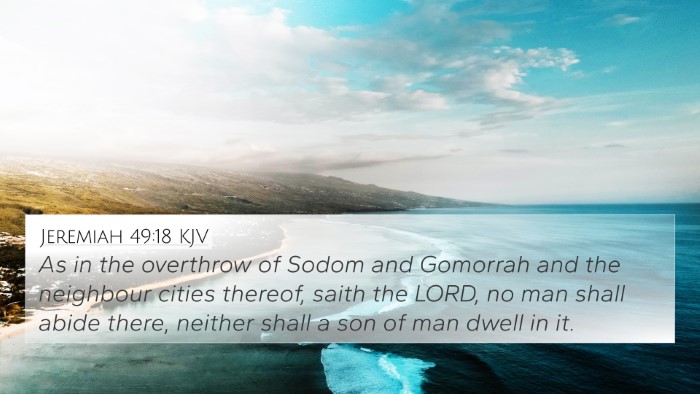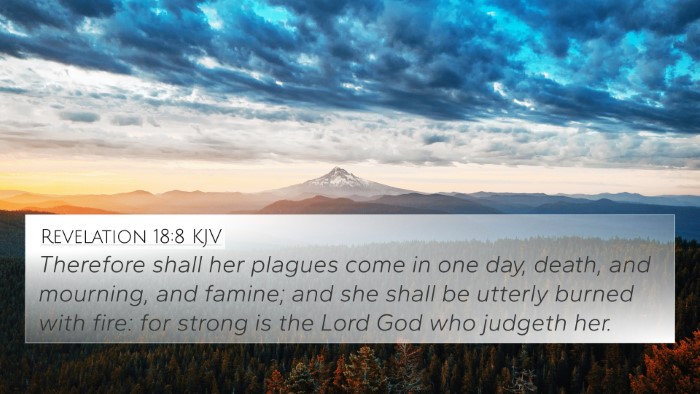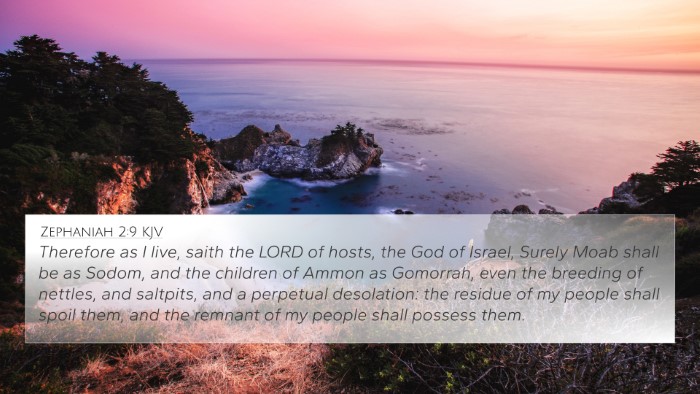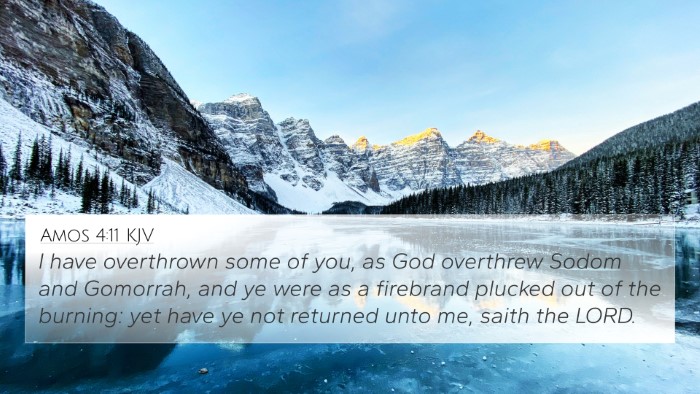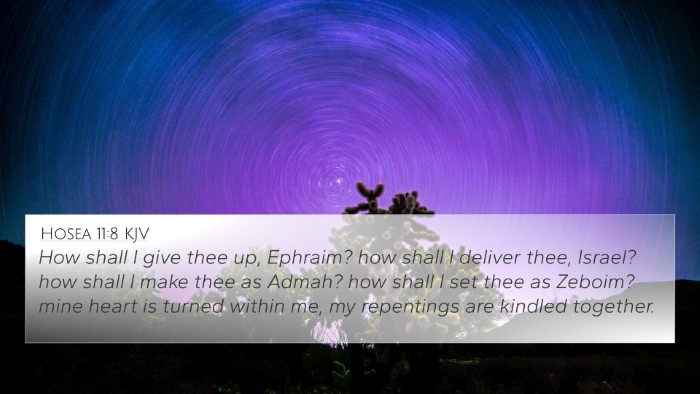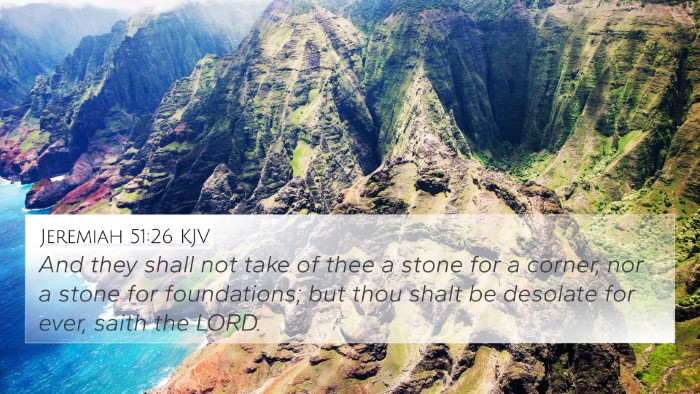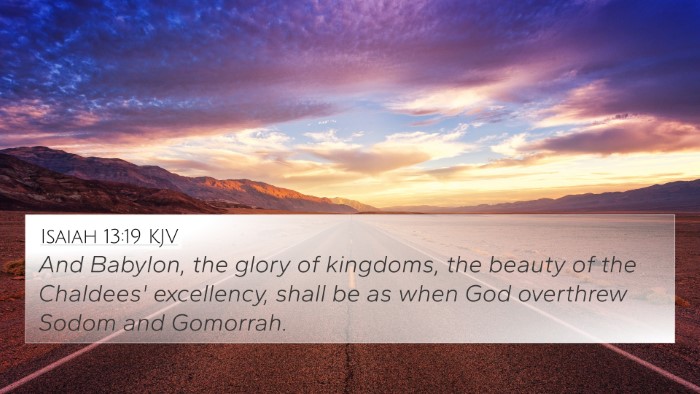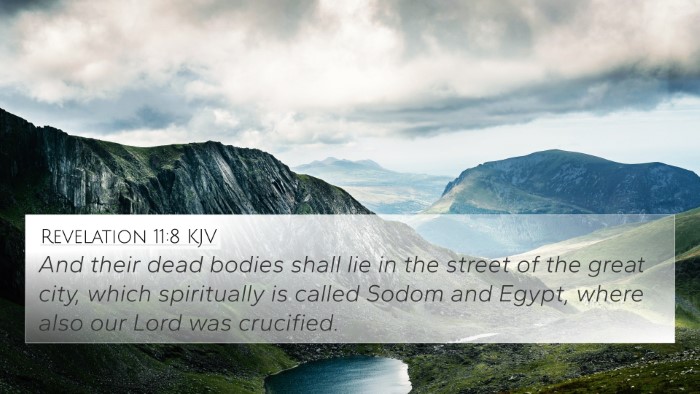Understanding Jeremiah 50:40
Jeremiah 50:40 reads: "As God overthrew Sodom and Gomorrah and their neighbors, says the LORD, so no man shall dwell there, nor son of man abide there." This verse serves as a prophetic declaration concerning the desolation of Babylon, drawing a parallel to the destruction of the cities of Sodom and Gomorrah in ancient times.
Context and Background
This passage occurs within the broader context of Jeremiah's prophecies against Babylon. The prophet warns of impending judgment and the total destruction of this great city, highlighting God's sovereignty over nations and His capability to bring down the mighty.
Historical Significance
Babylon's downfall is likened to the historic demise of Sodom and Gomorrah, illustrating themes of divine judgment and accountability. Such comparisons resonate throughout scripture, revealing God’s consistent stance against wickedness.
Commentary Insights
Matthew Henry’s Commentary
Matthew Henry emphasizes God's power to judge and His role as a righteous judge. The destruction of Sodom and Gomorrah serves as a stark reminder of what happens when nations become corrupt and negligent towards God’s commands. He notes that the finality of Babylon’s destruction signals the end of its oppressive reign.
Albert Barnes’ Notes
Barnes points out the vivid imagery employed in this verse, likening the catastrophic fate of Babylon to that of the infamous Sodom and Gomorrah. He draws attention to how God’s interventions throughout history serve as warnings to those who stray from righteousness.
Adam Clarke's Commentary
Adam Clarke elaborates on the metaphorical implications of this verse, indicating that Babylon's complete desolation signifies the eradication of its culture and influence, similar to how Sodom's legacy became a byword for immorality. He insists on the importance of acknowledging God’s justice in ruling over nations.
Thematic Connections
- Divine Judgment: Both Babylon and Sodom faced consequences for their moral failures.
- Hope for the Oppressed: The fall of Babylon signifies deliverance for the oppressed nations.
- Historical Precedents: References to historical events strengthen the message of inevitable divine retribution.
- God's Sovereignty: This passage highlights God's ultimate authority over all earthly kingdoms.
- Moral Decay: The parallelism emphasizes the dangers of widespread immorality.
Cross-References
This verse can be connected to several other passages that enhance its meaning and implications:
- Genesis 19:24-25: The account of Sodom and Gomorrah's destruction.
- Revelation 18:2: The announcement of Babylon's fall in the apocalyptic context.
- Isaiah 13:19: Similar prophetic declarations about Babylon's destruction.
- Luke 17:28-30: Jesus referencing Sodom's fate in the days of judgment.
- 2 Peter 2:6: A New Testament reaffirmation of God's judgment on unholy cities.
- Ezekiel 16:49-50: Illustrating the sins that led to Sodom's demise.
- Jeremiah 51:62: A mention of the destruction prophecy concerning Babylon.
Application and Reflection
This verse serves as a reminder of the consequences of turning away from God's ways. It urges readers to reflect on their own lives and the societies they inhabit, considering the implications of moral decay and the importance of aligning with divine principles.
Practical Steps for Understanding and Cross-Referencing Bible Verses
- Utilize a Bible concordance to locate related themes.
- Engage in cross-reference Bible study to uncover deeper meanings.
- Examine the connections between Old and New Testament scriptures.
- Explore Bible reference resources such as commentaries and guides.
- Conduct a comparative study of Pauline epistles to find relevant discussions.
Conclusion
This exploration of Jeremiah 50:40 invites readers to understand the gravity of God’s judgment, as evidenced in historical comparisons and prophetic warnings. The verse, alongside its cross-references, provides rich material for study, reflection, and application in modern faith contexts.
By examining the connections between Bible verses, readers can uncover greater insights into the nature of God’s justice and mercy towards humanity.
